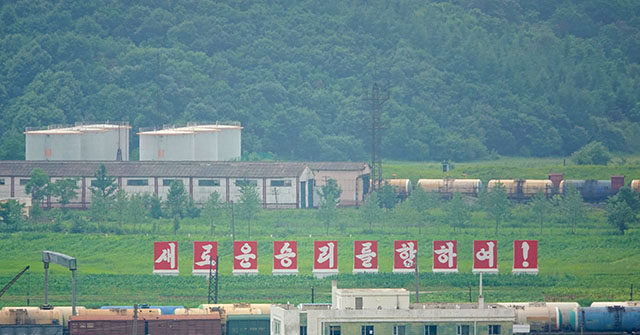On Wednesday, the North Korean military declared its intention to sever all road and rail connections with South Korea and construct additional fortifications along their shared border, a move that significantly escalates tensions between the neighboring states. This announcement follows reports from the South Korean military, which noted an uptick in North Korean activity at the border, including the removal of street lights on inter-Korean highways and the presence of landmines scattered along the routes. These heightened measures appear to signal a stark shift from previous efforts at reconciliation, as North Korea seeks to fortify its borders amidst growing concerns over military exercises conducted by the U.S. and South Korea.
In an alarming development, North Korea has seemingly undertaken the systematic installation of landmines along all roads, including those once viewed as symbols of cooperation between the two Koreas. This action has been characterized as an effort to erase physical reminders of inter-Korean dialogue and peace initiatives. The rhetoric used in the North Korean military’s statement reflects a hardening stance against South Korea, labeling it as the “primary hostile state” and reiterating that reconciliation is no longer a strategic objective of Kim Jong-un’s administration. Such declarations indicate a firm pivot toward militarization, utilizing the perceived intentions of South Korea and its allies as a pretext for further defensive measures.
The North’s justification for demolishing infrastructure ties with South Korea revolves around the need to bolster its defenses against what it views as hostile maneuvers from the South and the U.S. This preemptive destruction is framed as a “self-defensive measure,” suggesting that North Korea believes these actions are vital for its national security. Additionally, the regime has made a point of communicating directly with the U.S. military command in South Korea, sending a “telephone message” to prevent any potential misunderstandings that could escalate into conflict, which shows a layer of calculated communication intertwined with their military strategy.
Despite the alarming rhetoric and threats from the North, the South Korean Joint Chiefs of Staff (JCS) reported no immediate signs of military construction activity from North Korea. This discrepancy suggests that, while North Korea may be vocal in its threats, there may not yet be concrete actions to back them up. The JCS has issued a warning that any unilateral changes made by North Korea will not go unnoticed, emphasizing a commitment to maintaining stability along the border. They have vowed a strong response should provocations occur, asserting an overwhelming military capability to address any threats emerging from the North.
These tensions come against a backdrop of longstanding friction on the Korean Peninsula, which has been characterized by periods of conflict and attempts at diplomacy. The history of inter-Korean relations has fluctuated between moments of hope for peace and escalations of military posturing. North Korea’s recent actions and statements indicate a firm rejection of reconciliation efforts that previously aimed to bridge the divide between the two nations, opting instead for a path of isolationism and aggression.
The unfolding situation highlights the fragility of peace on the Korean Peninsula and the precarious nature of security in the region. As both military alliances and rhetoric intensify, the prospect of miscommunication or miscalculation remains a significant concern. The international community watches closely, as decisions made in the coming days by both North and South Korea could have profound implications for regional stability, and the potential for dialogue appears increasingly bleak amid escalating hostilities. In essence, the actions taken by North Korea signal a retreat from collaboration towards a strategy that prioritizes military readiness at the expense of diplomatic relationships.

